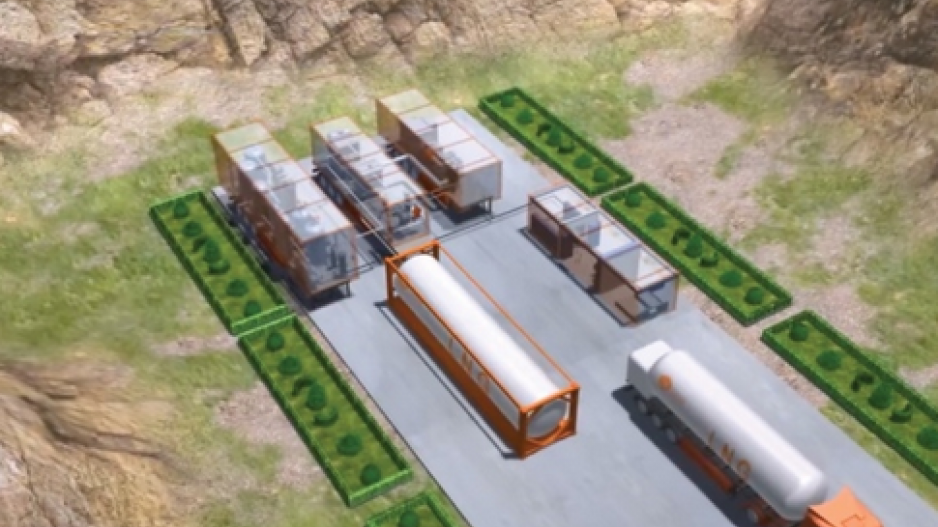Natural gas producers in the Fort Nelson area could finally have some new customers.
Last year, two Vancouver-based mining companies announced plans to commission Calgary’s Ferus Natural Gas Fuels Inc. to build a $200 million liquefied natural gas (LNG) plant near Fort Nelson to supply LNG to new mines planned for the Yukon and Northwest Territories. The first phase is scheduled to be built in 2020.
And just last week, KT Energy Corp., a Vancouver subsidiary of China’s Kai Tian Energy Group, announced plans to build an $18 million mini LNG plant north of Fort Nelson.
KT Energy recently received a permit from the BC Oil and Gas Commission to produce 20,000 gallons of LNG per day for a nascent domestic market. KT Energy plans to begin building its mini LNG plant in 2018.
The LNG produced near Fort Nelson would be trucked by LNG tanker truck to communities in the Yukon, Northwest Territories and northern B.C. for use as an alternative to diesel in power generation. Some northern communities, like Whitehorse, have already begun making that switch. FortisBC had been supplying LNG to Whitehorse and Inuvik from its Tilbury Island plant in Delta, but Ferus is now supplying those communities with LNG from its plants in Alberta.
KT Energy has built its mini LNG modules in China, but the one planned for Fort Nelson would be the first built in Canada, said KT Energy CEO Betty Cheng.
Large LNG export plants like the one proposed by Petronas in Prince Rupert cost billions. The mini modular plant that KT plans to build north of Fort Nelson would have an estimated capital cost of just $18 million.
The modules would be built in China and then shipped to Fort Nelson for assembly, starting in the summer of 2018.
“When the equipment is shipped here, the on-site construction and installation is very fast,” Cheng said. “It just takes one to two months.”
Cheng said the company has some potential customers lined up, but no firm commitments yet. The gas would be supplied from an unnamed gas producer in the Fort Nelson area.
Once the Fort Nelson plant is built, Cheng said, there may be other opportunities in B.C.
Fort Nelson Mayor Bill Streeper, who has been a driving force behind developing a domestic market for LNG, welcomes KT Energy’s plans.
Unlike the liquids-rich gas fields of the Montney formation in the Fort St. John-Dawson Creek area, the Fort Nelson region’s abundant – but dry – natural gas is comparatively undeveloped. Streeper has been lobbying to tap some of the area’s gas reserves for domestic use.
“We’ve got so much gas here we don’t know what to do with it,” Streeper said.
Not only does it have an abundance of natural gas, it is also much closer to the northern communities that are beginning to switch from diesel power to LNG.
Whereas FortisBC had been trucking LNG 2,500 kilometres to Whitehorse and 3,735 kilometres to Inuvik, from Fort Nelson, it’s less than 1,000 kilometres to Whitehorse and 2,140 kilometres to Inuvik.
Streeper said he thinks there’s a strong economic case to be made for small LNG production in Fort Nelson to supply those northern communities. He added he thinks there’s a good case to be made for using LNG not only for generating power, but also for displacing fuels such as propane for heating.
“You should be making it right here and taking it north,” Streeper said. “What hasn’t even begun to be discussed by these communities, like Whitehorse, is they’re taking it up there for generating power. What about heat?”
Streeper said there is also an economic case to be made for refining the region’s natural gas into diesel for trucks and heavy machinery.
He is working on a plan to build a natural-gas-to-diesel refinery in Fort Nelson.




